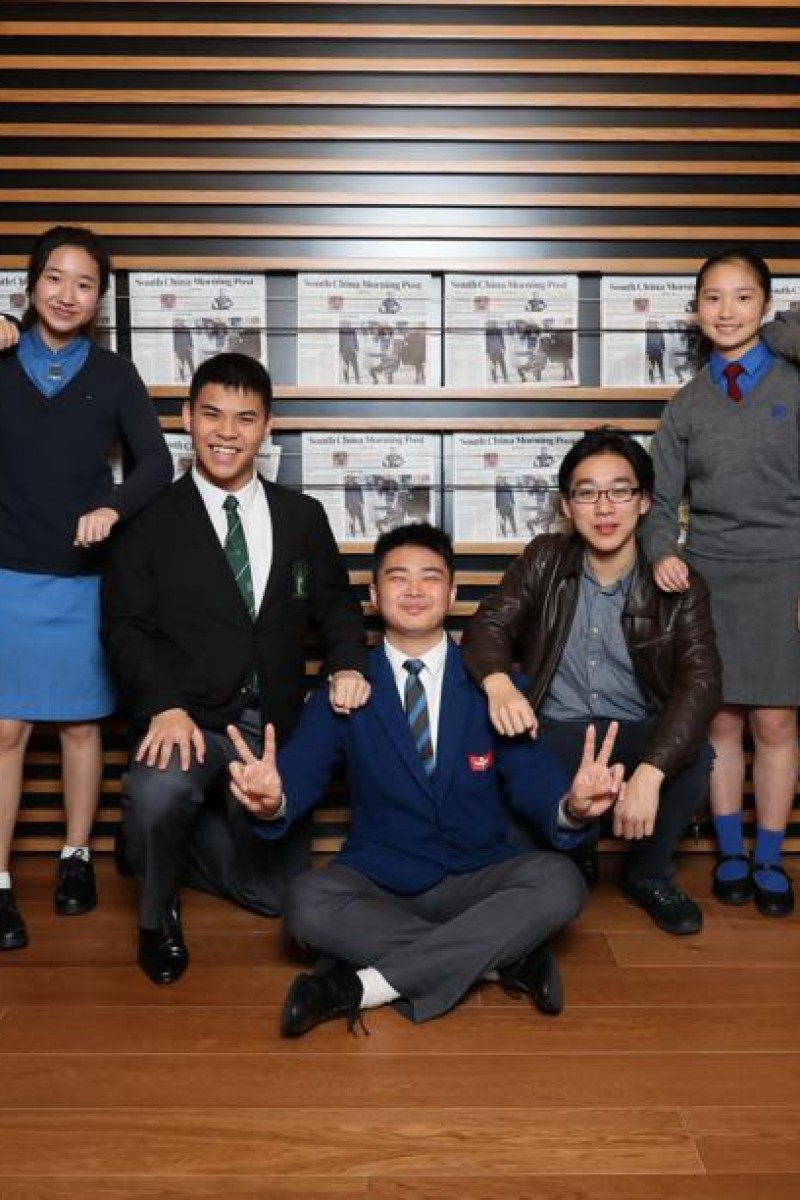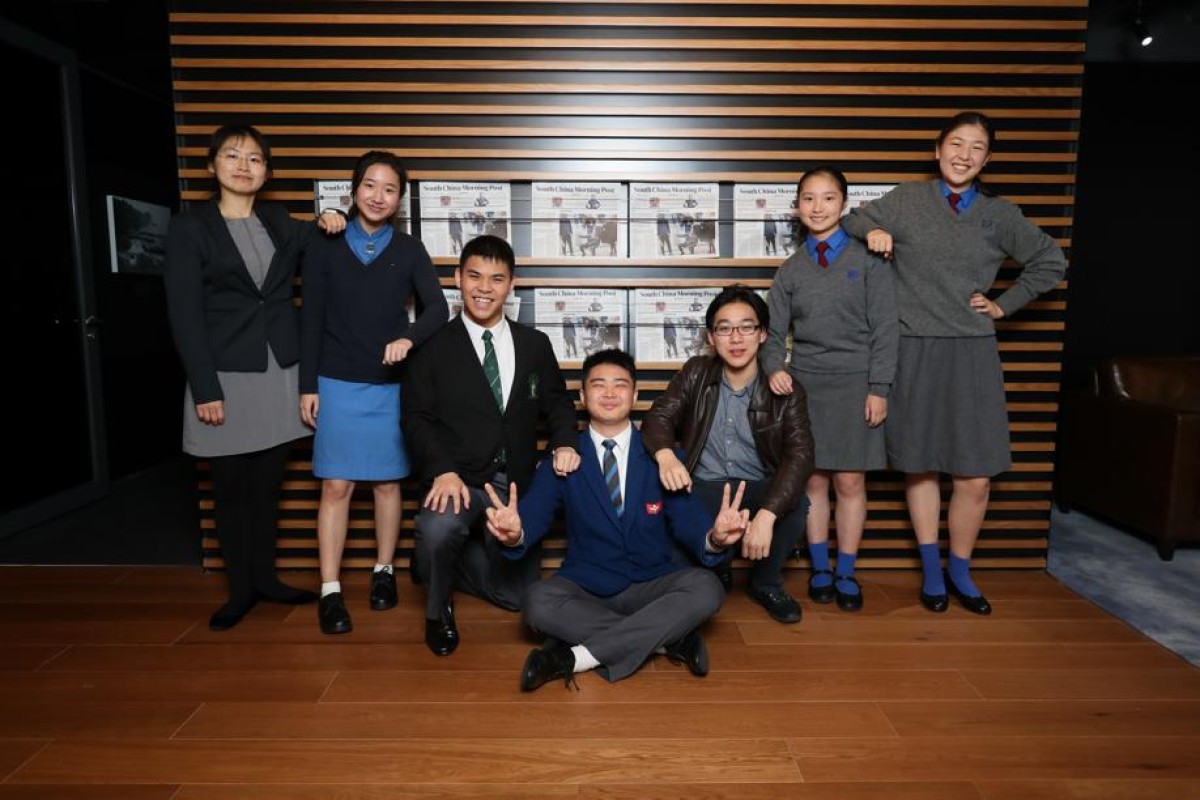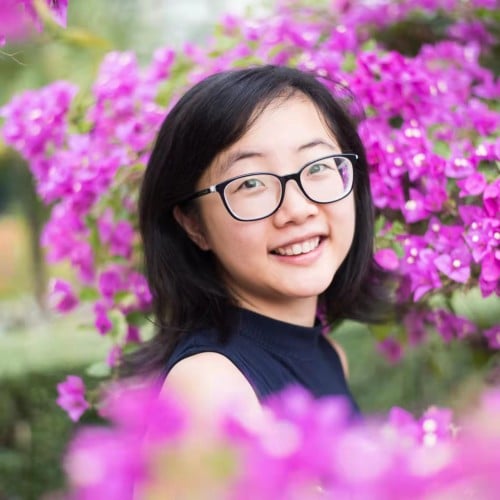
SOTY 2017: linguist finalists explain why it's important to learn about the relationship between language and culture
Whether its Cantonese, Putonghua or English, the 2017 Student of the Year Linguist finalists believe in the power of language to open new doors
 This year’s SOTY finalists in the linguist category believe reading – whether it’s a recipe book or the work of their peers – can help with language learning.
This year’s SOTY finalists in the linguist category believe reading – whether it’s a recipe book or the work of their peers – can help with language learning. Student of the Year Linguist finalists walked into the South China Morning Post office ready to impress.
At the final judging on February 23, each of the finalists – 24 students from three categories: English, Cantonese and Mandarin – was asked to give a speech on the theme “A Vision that Works” in front of a panel of judges.
Many of them have visions to promote their beloved language.
Wong Hiu-ying, a Holy Trinity student and finalist in Cantonese, wants to promote public speaking and debating. A public speaker and debater herself, Hiu-ying says she had a lot of help from her coach and now she wants to return the favour.
Her fellow contestant and Wa Ying College student Yu Pui-ying, a finalist in Cantonese, hopes to promote the debating culture of critical thinking, while Cheung Hau-man, a Kowloon True Light Middle School student, wishes to help local students understand what English really is. “Students should not only learn English through exams; they should learn it in a fun, interactive and engaging way,” Hau-man said.
A Mandarin finalist, Wang Guanran from Singapore International School has a similar vision. Having spent a few years living in Singapore before moving to Hong Kong in 2015, he compared the Mandarin learning system in the two places. “[In Hong Kong,] we’re so focused on learning the language, we ignore the fact that culture is part of the language. Without the knowledge of culture ... it’s hard to accept something. You may know [how to speak Mandarin], but you don’t embrace and accept it in your inner self. So we see more students rejecting the language instead of liking it – they just do it for exams.”
Professor Tong Ho-kin, acting dean of the Education University of Hong Kong’s faculty of humanities and judge in both Cantonese and Mandarin categories, spoke highly of this year’s candidates, especially the Mandarin finalists. “Many of them speak of the importance of cultural inclusiveness and embracing social inclusion,” he says, adding that it’s a pleasure to see young people who understand that importance.
“You can also see the finalists [from both categories] showing their knowledge and concern of social issues, and to take it to the next level, they know what they can do as individuals,” says Tong.
He was also impressed by the finalists’ literacy knowledge. “Some of them quoted the classics and you can see that reading is what they’ve spent a lot of time on,” he said.
Reading ranks highly among most of the finalists when it comes to language studying tips. Guanran says he recommends reading everything from literature to news stories. “It’s important in shaping your understanding of a culture,” he added. It’s not only reading about the past, he said, but also about current affairs, because language is constantly evolving and modern writing reflects that.
Yip Ning-see likes to read both the original English and the Chinese translation of the same book to compare the two languages. “It’s the best way to familiarise yourself with both languages and spot the differences,”says the Heep Yunn School student and finalist in Cantonese.
Hau-man never particularly liked reading but, as a fan of cooking, she gained an interest in it through reading recipes. She also recommends listening to audio books. “Reading helps [with language study] but it’s hard for Hong Kong students to squeeze time to read bricks and books,” she said. Another trick up her sleeve is to read her friends’ published articles in Young Post. “Learning from an advanced writer can be difficult, but it’s easier to catch up with your peers’ work and [pick up] their writing skills,” she said.
The Student of the Year Awards competition is organised by the South China Morning Post and Young Post and sponsored by the Hong Kong Jockey Club.
